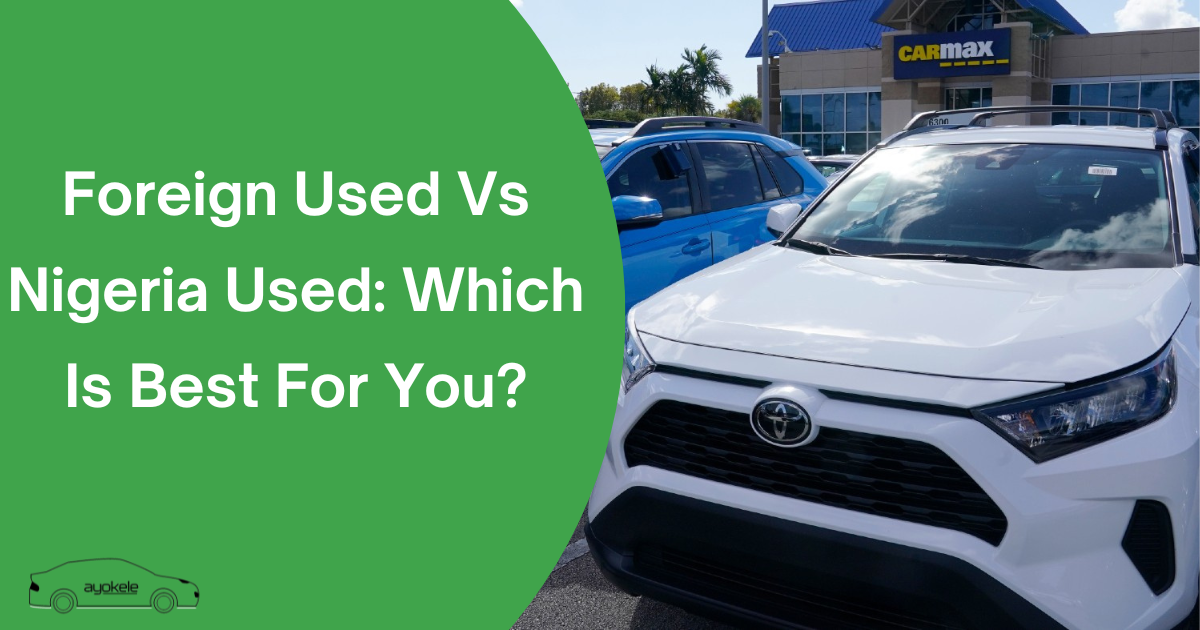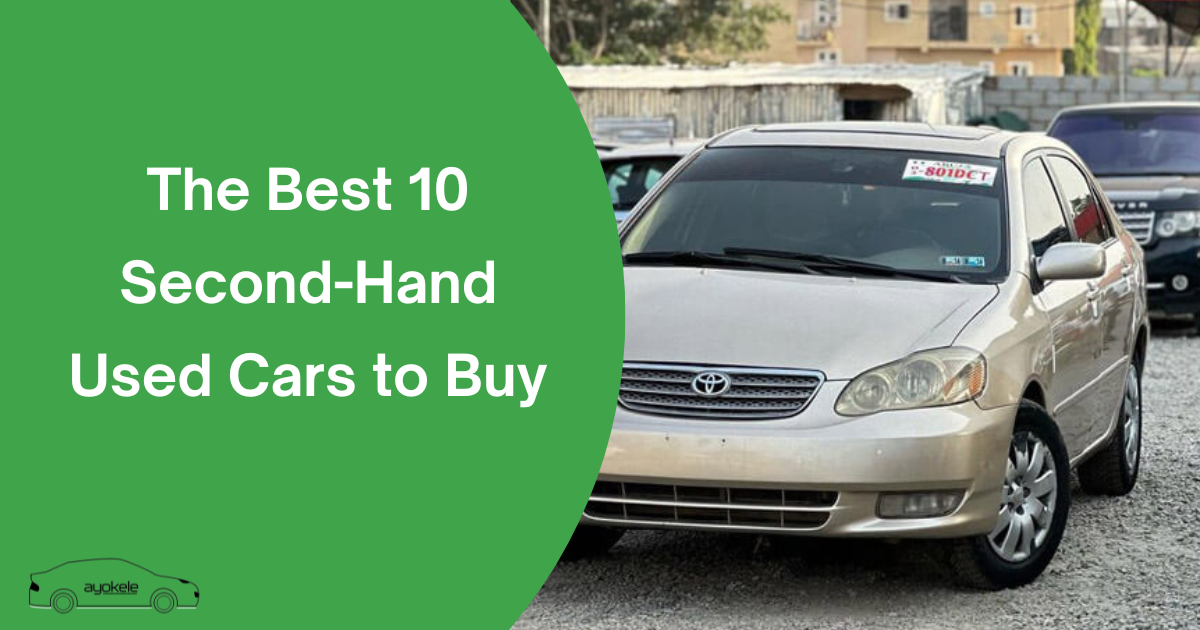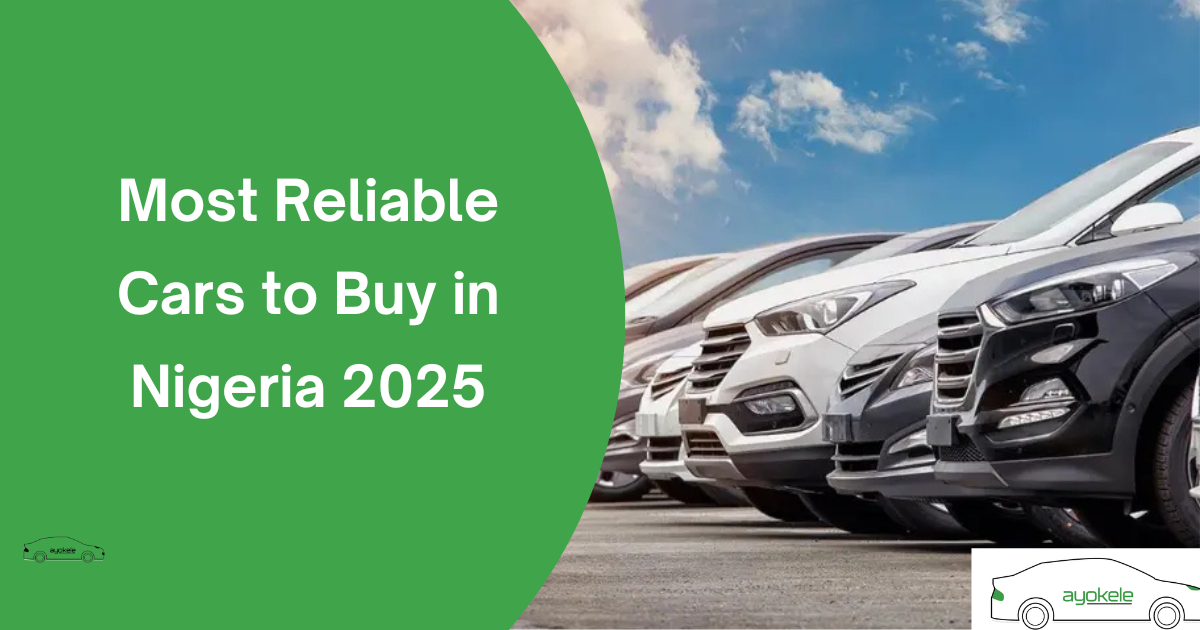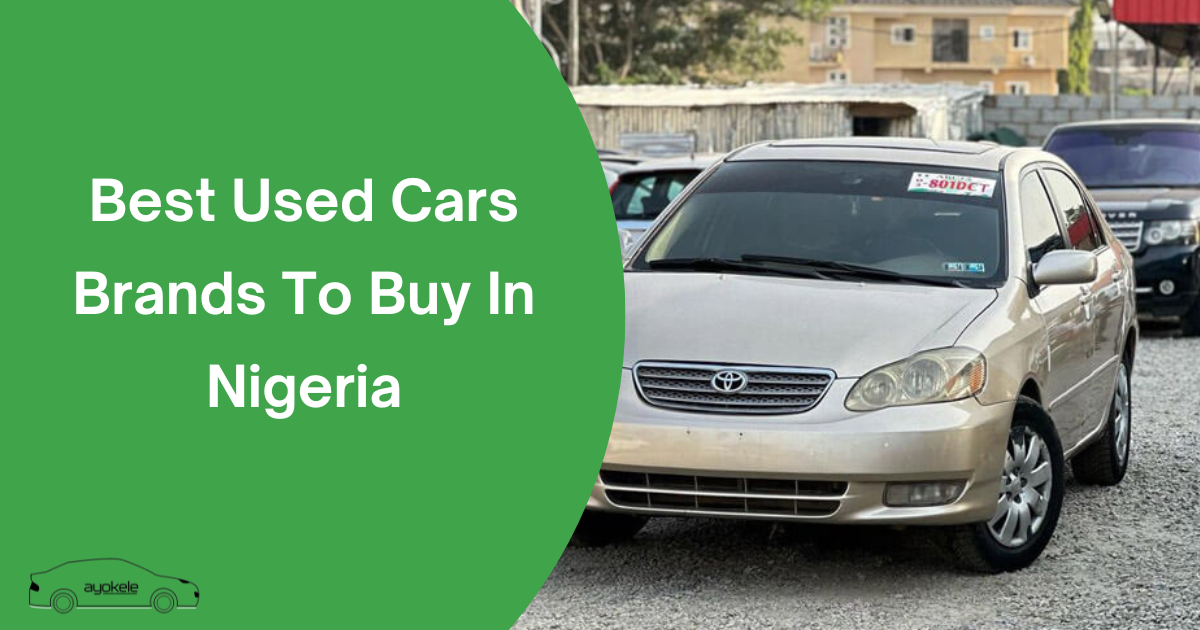When buying a used car, one of the biggest decisions you’ll face is choosing between a foreign used (Tokunbo) car and a Nigerian used car. Both options have Nigerian advantages and drawbacks, and the right choice depends on factors like budget, car condition, and maintenance costs. While foreign used cars are often seen as more reliable due to minimal wear and tear, Nigerian used cars are more affordable and easier to inspect before purchase.
This article compares foreign used cars to Nigerian used cars based on key factors such as price, condition, availability, and long-term maintenance. Whether you’re looking for a car with better mileage, lower costs, or easier access to spare parts, this guide will help you decide which option is best.
What Are Foreign Used Cars?
Foreign used cars, commonly known as Tokunbo cars, have been previously owned and used in other countries before being imported. These cars often come from places like the United States, Canada, Europe, and the Middle East, where vehicle owners frequently upgrade to newer models. Most Tokunbo cars are sold after a few years of use, meaning they often have lower mileage than locally used cars.
One main reason people prefer foreign-used cars is the better road conditions and strict vehicle maintenance regulations in foreign countries. These factors generally mean that Tokunbo cars arrive in relatively good condition, with less wear and tear than many locally used vehicles. However, before purchasing, it is essential to verify the car’s history and check for hidden issues such as accident damage or flood exposure.
What Are Nigeria’s Used Cars?
Nigerian used cars are previously owned and driven vehicles within the country. They are usually sold by individuals looking to upgrade, car dealers, or companies replacing their fleets. Unlike foreign used cars, Nigerian used cars have spent their entire lifespan on Nigerian roads, exposing them to local driving conditions, fuel quality, and maintenance practices.
One of the biggest advantages of buying a Nigerian used car is transparency—buyers can inspect the car in person, take it for a test drive, and verify its condition before purchase. Additionally, these cars are often more affordable than Toyota cars since there are no extra importation costs. However, the downside is that some Nigerian used cars may have undergone poor maintenance, suffered from overuse, or have hidden mechanical issues, making proper inspection crucial before buying.
Key Differences Between Foreign Used and Nigerian Used Cars
1. Price
One of the biggest differences between used foreign cars and used Nigerian cars is the price. Foreign used (Tokunbo) cars are more expensive because of import duties, shipping costs, and clearing fees at Nigerian ports. The total cost of bringing a Tokunbo car into the country includes expenses like customs duties, vehicle registration, and roadworthiness certification, which add to the final price buyers pay.
On the other hand, Nigerian used cars are generally cheaper since they are already within the country and don’t require importation costs. Buyers can negotiate prices more easily with local sellers, making these cars more budget-friendly. However, while Nigerian used cars may be cheaper upfront, some may requireimmediate repairs or maintenance, which could add to the long-term costs.
2. Condition & Mileage
Foreign used cars typically have lower mileage and are in better overall condition than Nigeria used cars. In countries like the United States, Canada, and Germany, roads are well-maintained, and strict vehicle inspection policies ensure that cars remain in good working condition before being sold. Additionally, foreign used cars often come with detailed service history records, giving buyers more confidence in their reliability.
Nigerian-used cars, however, may have higher mileage and more wear and tear due to rough roads, inconsistent servicing, and exposure to extreme weather conditions. Some Nigerian used cars might have been involved in multiple repairs, repainted, or even tampered with to make them appear newer than they really are. Proper inspection by a trusted mechanic is essential to avoid unexpected issues when buying a locally used car.
3. Availability & Selection
Tokunbo cars offer a wider variety of models and trims, giving buyers more options. Since these vehicles are imported from different countries, they often come with advanced features, safety upgrades, and modern technology that may not be available in locally used models. Buyers looking for hybrid cars, luxury brands, or specific vehicle specifications are likelier to find them in the foreign used car market.
Nigeria’s used cars, on the other hand, are limited to what is already available in the country. While there are many options, certain models or trims may not be easily accessible. However, buying locally allows buyers to inspect multiple cars quickly without waiting for an importation process.
4. Documentation & Legality
Important legal steps must be followed when purchasing a foreign used car. Buyers must verify customs clearance documents, import duties, and registration papers to avoid purchasing a smuggled or illegally imported vehicle. Cars without proper import documentation can be seized by authorities, leading to huge financial losses for the buyer.
Nigerian used cars, however, are often easier to verifysince they already have local registration and ownership records. Buyers can quickly confirm the original purchase receipt, proof of ownership, and vehicle registration papers. However, some Nigerian used cars may have issues like fake documents or unpaid debts, so thorough verification is still necessary.
5. Maintenance & Spare Parts
Maintaining a foreign used car can sometimes be challenging, especially if the car model is rare in Nigeria. While Tokunbo cars are generally in better condition, some models may require specialized spare parts or software updates, which can be expensive or difficult to find. Additionally, some foreign used cars may have features incompatible with Nigerian roads or fuel quality, leading to unexpected repair costs.
On the other hand, Nigerian used cars are easier to maintain because they have already been adapted to local conditions. Mechanics are more familiar with these vehicles, and spare parts are often cheaper and more accessible. This makes maintenance less stressful for buyers who don’t want to deal with delays or expensive imported parts.
Which One Is Best for You?
Choosing between a foreign used (Tokunbo) car and a Nigerian used car depends on your budget, preference, and long-term plans. If you’re looking for a car with lower mileage, better condition, and advanced features, a foreign used car may be the better choice. These cars usually come from countries with better road conditions and stricter maintenance regulations, meaning they are often in better shape than locally used cars. However, they come at a higher cost due to import duties, clearing fees, and registration expenses. If you have the budget and want a reliable vehicle with minimal repairs needed, a Tokunbo car is worth considering.
On the other hand, a Nigerian used car is a great choice for buyers who want a cheaper and more accessible option. Since these cars are already in the country, they do not require importation costs, making them more budget-friendly. Another advantage is that you can physically inspect and test-drive the car before buying, reducing the risk of hidden damages. Additionally, spare parts and repairs are usually easier and cheaper, as mechanics are already familiar with these vehicles. However, some Nigerian used cars may have higher mileage, wear and tear, or poor maintenance histories, so careful inspection is essential.
Ultimately, the best choice depends on your needs and financial capability. A foreign-used car is ideal if you prioritize better condition and long-term reliability. A Nigerian used car is a great alternative if you prefer a cheaper, more flexible option with easier maintenance. Before deciding, always inspect the car, verify the documents, and consider future maintenance costs to ensure you get the best value for your money.




